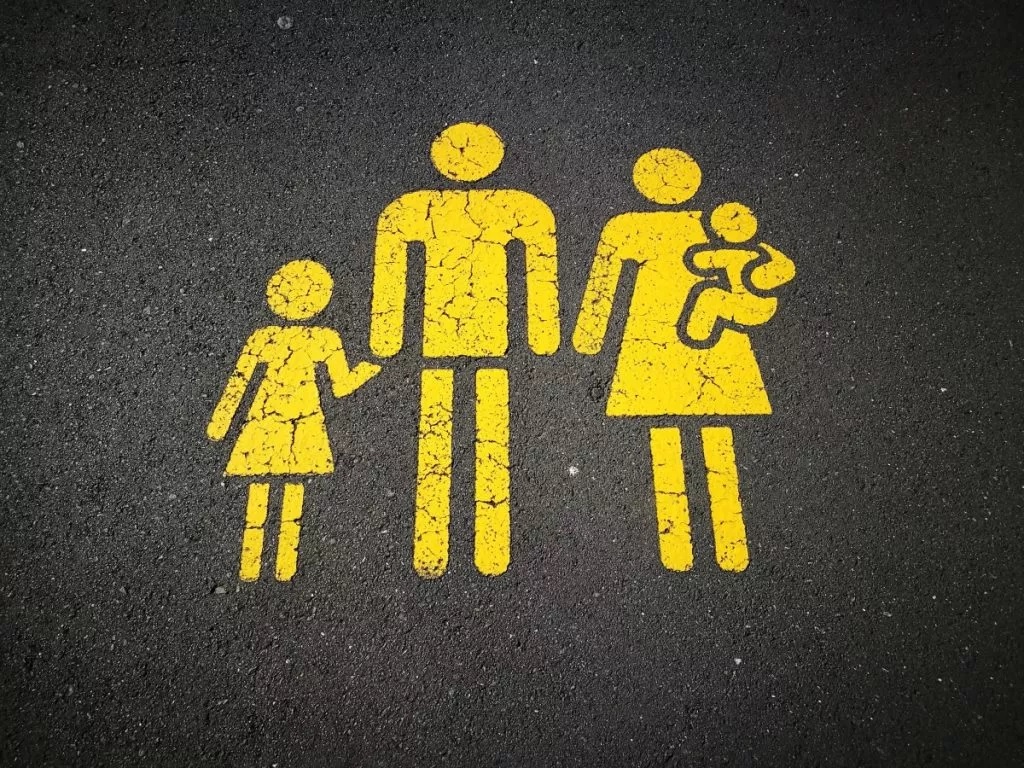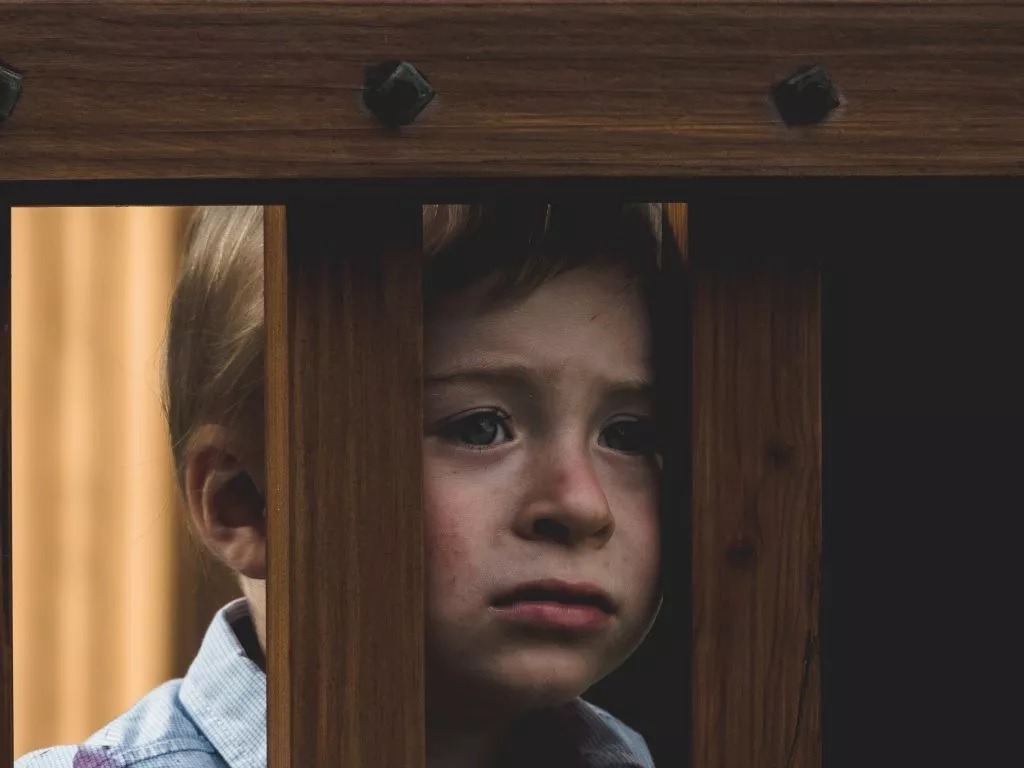We are all products of our upbringing. Ideally, we are raised by loving, positive, and stable parents in childhood. However, not all children are so lucky. If one or more addicted parents raised you, your childhood might have been challenging. The ACE (Adverse Childhood Experience) study found that children who grow up with addicted parents can be as damaged as those who are directly abused. Studies also prove that mental illness is more likely to occur in daughters of alcoholic mothers [1] even more than daughters of alcoholic fathers.
An insecure attachment to a child often accompanies addiction. This could cause a drug-addicted or alcoholic dad/mom to be out of touch with the child’s needs. Dynamics of constant stress and instability can cause the children of addicts to be filled with fear. With the chaos and instability often accompanying addiction, the child faces unsafety in their home. If the pattern is not broken, the impact can be lifelong and far-reaching. Each family has its specific dynamics that are impacted by addiction. The negative role that addiction plays can lead to deep wounds in the children of addicts.
The Impact for Children of Addicts

In recent years, America has seen an uptick in opioid addiction. With that rise, the number of children growing up in a home with one or more parents addicted to drugs/alcohol has grown. SAMHSA [2] found that an average of 8.7 million children annually live in homes with a parent who has a substance use disorder. That is one in every eight children who has an addicted parent.
Children of drug addicts often blame themselves for their parent’s choices as opposed to recognizing themselves as victims and seeking help. Children are often afraid to betray their parents by sharing their secrets with others who can help, and suffer from feelings of guilt and fear if they do expose the problem. Their parents will often discourage them from seeking help. There is also a genuine fear that the addicted parents may lose custody of their children if their substance abuse is exposed. However, it is possible to get support and help and even books about parents with addiction.
The impact of parental addiction on child development is genuine. The effects can show themselves both during childhood and adulthood. Here are some common effects that come up during childhood:
- Social and academic delays
- Unhealthy roles which can be challenging to break even once the situation is no longer active
- Behavioral problems
- low self-worth or self-esteem
- Intense feelings of shame and guilt
- Codependency
- Anxiety
- Depression
- Suicidal tendencies
- Increased risk for substance abuse
- Pressure to be a “good child”
- Perfectionism
Here are some effects of parental addiction that extend into adulthood:
- Adult children of addicts are linked to lower socioeconomic status
- Increased likelihood of developing a SUD
- Relationship or intimacy problems
Family Roles in Addiction - Can Addicts be Good Parents?

In a family with addiction, roles are often reversed, with children being parentified. This is when a child must parent their parent since one or more parents lean on the child for support. In a home with an addiction, the addicted parent may depend on the children physically or emotionally. The “caretaker” or non-addicted parent can lean on their children as well, needing the support they lack from the absent spouse. Often the addict becomes dependent on those around them to support their life of addiction. Adult tasks such as disciplining, finances, and errands can be expected of children. Children will quickly learn to adapt to the necessary role to survive in a home with an addict.
- Addict – the center of the family. All decisions revolve around this person.
- Hero – the person who tries to keep the family together.
- Enabler/caretaker- the person trying to keep everyone happy
- Lost Child – the family member who checks out of the situation.
- Jester- the person using humor to cope and protect others from pain.
- Scapegoat- the person acting out to distract himself from the problem.
These roles are typically developed within the home but can continue in adult children of addicted parents. In addition, reversing healthy roles can affect children in traumatic ways.

How to Deal with Addicted Parents
The most important thing for children of addicts to remember is that addiction is a disease. Like any illness, when one is under the influence of a substance, their entire body and brain act out of sync. Unlike most diseases, most people are reluctant to treat addiction due to the difficulty of withdrawal. Even once treated, addiction is a lifelong battle. Therefore, it is essential to be patient with an addict going through recovery.
Intervening with an addicted person can be extremely challenging, even more so when the addict is your parent. In addition, the addicted person may be unaware of their addiction and the havoc it is causing.
Therefore, to help, the necessary steps should be taken to set up the conversation for success.
This includes:
- Write down how you feel first. This can help the conversation stay level-headed.
- Seek professional guidance. Speaking to professionals in the field can help guide you to having a successful conversation.
- Ask other people to join the conversation. Having other affected people present can help get the point across clearly.
- Speak to the person when they are sober. The conversation should take place when the other party is sober.
- Keep the conversation tone calm. It is easy for the conversation to turn angry or emotional, but keeping calm can help a person be more persuasive.
- State what you want clearly. Knowing what steps you would like the person to take can help guide the conversation successfully.
- Get outside help. Having someone help keep your parents accountable can go a long way in ensuring they do follow through with recovery.
When a parent goes into recovery, navigating and healing the relationship can still be difficult. For adult children of addicts, dealing with the disappointment and pain of having a parent who was an addict can be complex. It helps to understand that most addicts have underlying trauma or mental illness that led to addiction. Understanding addiction is a disease like any other can help one forgive and repair a damaged parent-child relationship.
Helping a Child Whose Parent is Struggling with Addiction

If your parent is an addict, you can choose to create a better lifestyle for yourself. Although growing up in an addiction household is filled with challenges, there is help. There is support and education that will help you navigate through life.
Here are some helpful steps adult children of addicts can take to recover:
- Get a mentor or an older figure to confide in.
- Join a support group (such as Al-Anon or Adult Children of Alcoholics)
- Seek a residential treatment program if there are struggles with addiction.
- Receive therapy or counseling.
- Learn stress management and life skills.
Addiction can become an intergenerational struggle unless someone is brave enough to break the cycle. While the odds of struggling with addiction are unfairly stacked against children of drug addicts and alcohol addicts, it is not a life sentence. Instead, if you choose to stop the cycle today, you are creating a better life for yourself and all your future generations.
If you are looking for help and support in encouraging your parent or loved one to start the recovery process, Avenues Recovery welcomes your call. Contact us 7 days a week to speak with a representative who understands your struggles.
Sources
[1] www2.um.edu.uy
[2] samhsa.gov


